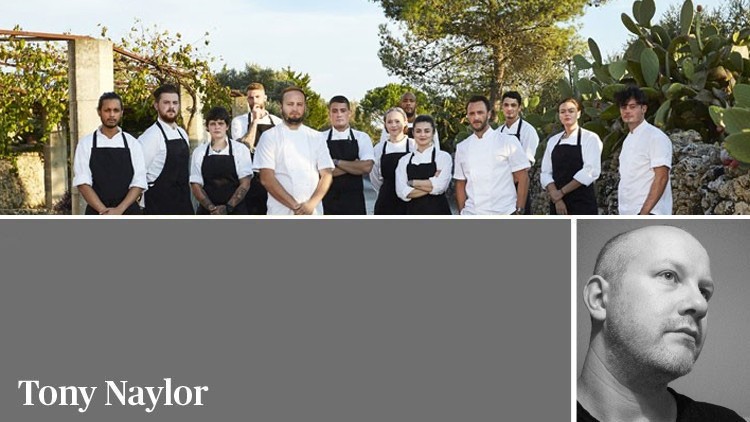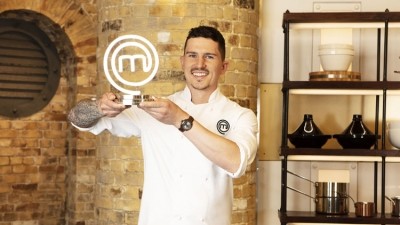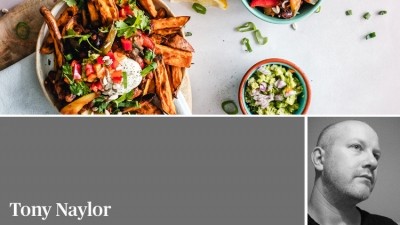Are TV dinners empty calories?

Unsurprisingly, tension was a constant in Jason Atherton’s The Chef’s Brigade, recently aired on BBC2. Manufactured jeopardy, personality clashes and dramatic exits are the framework on which reality TV hangs and, from that point of view, The Chef’s Brigade – in which Atherton moulded raw chefs into a team to take on Europe’s best kitchens – fulfilled its brief.
Hospitality employers may have been gripped for different reasons. As the staffing crisis has deepened, senior industry voices have repeatedly claimed that such TV exposure is vital, a silver bullet even. All we need, runs this theory, are opportunities to show what careers people have in the kitchen and new recruits will flock.
Did The Chef’s Brigade help in that regard? Maybe. Despite the testy format, it was less macho and explosive than it might have been. Women shone (are you listening Marco?), and Atherton went about his firm-but-fair business more in the manner of Pep Guardiola than his old boss Gordon Ramsay. It felt progressive.
Twitter’s verdict was broadly positive, with several people hailing Atherton’s model leadership, but equally notable was how muted the reaction was overall. Compared with the late 90s, when Ramsay, Jamie Oliver and co were huge mainstream stars and when chefs felt hip, glamorous and aspirational, this did not feel like a big TV moment. The first episode attracted a respectable 1.1 million viewers, reported Broadcast, but those numbers won’t shift the recruitment dial.
Audience reach aside, there is another problem with the concept of TV-led recruitment – namely, format. TV needs winners and losers and, like Great British Menu or MasterChef: The Professionals, The Chef’s Brigade ultimately portrayed cooking as less a matter of teamwork and more a personal battle where, every day, you have to impress judges, diners, viewers… or Jason Atherton.
The narrative, explicit and implicit in all these shows, is one of constant pressure, where only the most driven survive. Perhaps at Michelin level – which TV unquestioningly insists all chefs aspire to – that is true. But there are just under 180 Michelin-starred restaurants in Britain out of a total of 26,265 (according to AlixPartners and CGA), not to mention the 90,000 or so food-led pubs, fast food venues and mobile vendors that all need chefs.
You see the disconnect? TV focuses on a very narrow band of chefs and, according to data published last year by recruiter caterer. com, in a way that is, possibly, counterproductive. Some 63% of those surveyed said they would not want to work in hospitality and 46% of those blamed that on TV’s depiction of professional kitchens as highly stressful environments.
Knife-edge tension is not the reality in every kitchen, but how do you communicate that? Filming in a forward-thinking kitchen where a calm head chef carefully manages the team’s physical, mental and creative wellbeing would make terrible TV. It would be as boring as, for balance, watching a cynical, middle-aged pub chef put things in a microwave all day.
Without the fabricated drama of TV, cooking professionally just isn’t that interesting and where the drama is heightened, it can deter new recruits. Two decades of TV coverage has not addressed the skills shortage and nor will it while the industry lags behind on hours and pay compared with other skilled trades.
Young people know they can make better money as plumbers and electricians, without any of the tension they see boiling over in TV kitchens. Until hospitality can match working conditions in such trades and communicate that early at school, college and via word-of-mouth, it will struggle to recruit. For the restaurant industry, TV fame is merely a distraction from bigger problems.
This is a web version of an article that first appeared in the October issue of Restaurant magazine, the leading title for the UK's restaurant industry. For more features, comment, interviews and in-depth analysis of the restaurant sector subscribe to Restaurant magazine here.
Follow Tony on Twitter: @naylor_tony























